National Academy of Sciences
Alfred Newton Richards, elected 1927
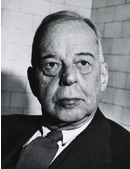
Alfred Newton Richards, PhD, proved kidneys filter blood by inventing glomerular micropuncture, was the first to employ inulin to study glomerular filtration rate and determined that renal tubules secreted or reabsorbed various substances in processing final urine. President Franklin D. Roosevelt appointed him to head the Committee on Medical Research during World War II. In that role, Richards put penicillin in production as a therapeutic agent. He was appointed the first professor of Pharmacology at Northwestern University Medical School starting in 1908.
Stephen Walter Ranson, elected 1940
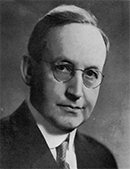
Stephen Walter Ranson, MD, PhD, was one of the most distinguished neuroanatomist of the early 20th Century and Director of the Institute of Neurology at the medical school in the 1930s. He and his colleagues mapped the unmyelinated fibers of the spinal ganglia and explored the structure and function of the hypothalamus, particularly as it relates to emotion, position in space, water balance, temperature regulation, sympathetic response, and the rhythm of sleep. He taught many medical students through his influential textbook, The Anatomy of the Nervous System.
Hans Popper, elected 1976
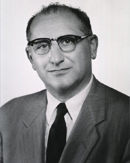
Hans Popper, MD, PhD, is widely regarded as the father of hepatology. After completing his service in World War II in 1949, Popper was appointed associate professor of pathology at Northwestern University Medical School. He published more than 800 papers with a focus on the liver in health and disease and became a founding member of the American Association for the Study of Liver Diseases.
Laszlo Lorand, elected 1987
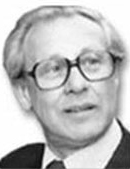
Laszlo Lorand, PhD, and his collaborators made discoveries that laid the foundation for the molecular understanding of the clotting of fibrinogen in blood. This led to the reconstruction of the physiological process as well as to the diagnosis of unusual bleeding disorders. His work served as a foundation for studying protein cross-linking in aging cells. He was the first director of a National Institutes of Health-funded Biochemistry Training Program and is a founding member of the Department of Cell & Developmental Biology.
Edwin Taylor, elected 2001
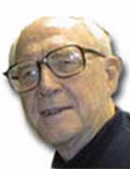
Edwin Taylor, PhD, made significant contributions to understanding the biochemistry of muscle contraction and cytoskeletal research. His investigations provided the first kinetic model describing how molecular motors convert chemical energy into mechanical force. He discovered several molecular cell motors, some of which assist in the motility of certain white blood cells, and showed how actin and myosin induce movement in non-muscle cells.
Patricia Spear, elected 2002
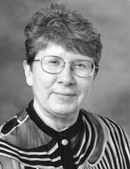
Patricia Spear, PhD, identified the mechanisms the herpes simplex virus types 1 and 2 use to enter cells. She also characterized the cell surface carbohydrates and proteins require for penetration of human cells and viral spread by cell-cell fusion. She is professor emeritus in Microbiology-Immunology.
Robert Lamb, elected 2003
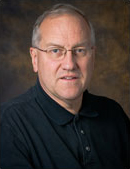
Robert Lamb, PhD, has studied the replication and pathogenesis of influenza virus and paramyxoviruses, specifically virus-mediated membrane fusion, the action of protein-selective ion channels, enveloped virus assembly and how these viruses defeat innate immunity. Lamb contributed nearly 40 years of service at Feinberg and Weinberg College of Arts and Sciences.
Gary Borisy, elected 2009
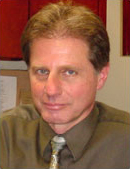
In 1965, Gary Borisy, PhD, discovered the protein tubulin, which comprises a key part of the cell's cytoskeleton. He provided important insights into chromosome movement and the role of the protein actin, a major component of cell motility, and the dynamics of microtubules, filaments that help direct cell division. Borisy, now an adjunct professor, was previously associate vice president for research and the Leslie B. Arey Professor of Cell & Developmental Biology.
Virgil Craig Jordan, elected 2009
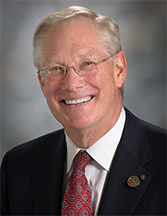
V. Craig Jordan, PhD, MD (Hon.), was professor of Molecular Pharmacology (1993-2004) at Feinberg, the Diana Princess of Wales Professor of Cancer Research (2000-2004), and Director of the Lynn Sage Cancer Research Program at the Robert H. Lurie Cancer Center. He received an OBE (2006) from Queen Elizabeth and numerous other awards. Jordan is known as the father of Tamoxifen for the treatment of breast cancer. He finished his career at the MD Anderson Cancer Center.
Chad A. Mirkin, elected 2010
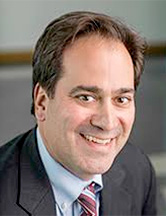
Chad Mirkin, PhD, is a chemist and world-renowned nanoscience expert known for his discovery and development of spherical nucleic acids and contributions to supramolecular chemistry and nanoparticle synthesis. He has authored over 870 manuscripts and over 1,200 patent applications worldwide (over 430 issued) and founded multiple companies. He is an Associate Editor of JACS and a PNAS Editorial Board Member.
Scott Hultgren, elected 2011

Scott Hultgren, PhD, received his doctorate in Microbiology-Immunology from Northwestern University Feinberg School of Medicine. His focus has been in elucidating basic mechanisms of bacterial pathogenesis and to study the molecular details of host-pathogen interactions that occur during urinary tract infections caused by E. coli. At Washington University, he has become a worldwide authority on issues relating to the structure and function of adhesive fibers called pili that play critical and unexpected roles in host-pathogen interactions along the urinary tract.
John A. Rogers, elected 2015

John Rogers, PhD, is internationally known for designing and developing classes of electronic devices with diverse diagnostic and therapeutic function that can bend, stretch and twist to integrate with the human body. His research spans disciplines and exploits novel approaches to problems with the potential to change the fields of industrial, consumer and biocompatible electronics. He is a member of the National Academies of Engineering, Inventors, Medicine and Sciences, as well as the American Academy of Arts and Sciences. His election to the Royal Society makes him only one of three scientists who are members of all three U.S. National Academies and the Royal Society.
Marc Jenkins, elected 2020
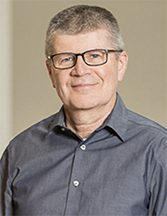
Marc Jenkins, PhD, received his doctorate in Microbiology-Immunology from Northwestern University Feinberg School of Medicine. During his postdoctoral training under Ronald Schwartz at the National Institutes of Health, Jenkins demonstrated the critical importance of a costimulatory signal for T-cells to achieve full activation and avoid a state of anergy. This discovery fundamentally reshaped the prevailing understanding of T-cell activation mechanisms, paving the way for further investigation into the molecular mechanisms governing T-cell activation and immune tolerance. His subsequent work at the University of Minnesota has been strongly focused on CD4 T-cell biology.
Anna C. Nobre, elected 2020
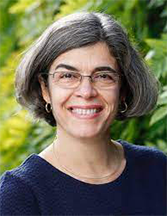
Anna Nobre, PhD, is a distinguished cognitive neuroscientist at the University of Oxford with an adjunct appointment in the Department of Neurology at Feinberg since 2001. Her work focuses how the brain prioritizes and selects information from the sensory stream and from memories at various time scales to form psychological experience and guide behavior. In particular, she has identified brain areas specialized for word recognition and face processing in the human using intracranial recordings, described the functional neuroanatomy of the network for controlling spatial attention in the human brain and noting its relation to oculomotor control, pioneered the neuroscientific study of temporal expectations, demonstrating the ability to orient selective attention within working memory, developed new experimental approaches to investigate how long-term memories guide selective attention, and introduced new somatic markers of attention in memory.
Samuel I. Stupp, elected 2020
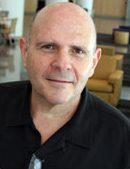
Samuel Stupp, PhD, studies nanostructures and materials with emphasis in regenerative medicine, organic electronics, solar energy and cancer therapies. He was elected to the National Academy of Engineering in 2012 for his work on the biomedical applications of self-assembled polymers. He is also a member of the National Academies of Sciences, Engineering and Inventors, and of the American Academy of Arts and Sciences.
Thomas McDade, elected 2021

Thomas McDade, PhD, is a biological anthropologist who specializes in human population biology. His work is primarily concerned with the dynamic interrelationships among society, biology and health over the life course, with an emphasis on life course approaches to stress and the human immune system. He was a 2002 recipient of the Presidential Early Career Award for Scientists and Engineers (PECASE).
Richard Silverman, elected 2023

Richard B. Silverman, PhD, is a professor in the Weinberg College of Arts and Sciences and of Pharmacology in the Feinberg School of Medicine. His research focuses on central nervous system disorders, including amyotrophic lateral sclerosis (ALS), Alzheimer’s disease, Parkinson’s disease, and epilepsy, and on cancer, including melanoma and hepatocellular carcinoma, with the goal of developing pharmaceutical therapies. He is the inventor of Lyrica, a breakthrough drug marketed by Pfizer for epilepsy, fibromyalgia, and neuropathic pain.
Ali Shilatifard, elected 2025
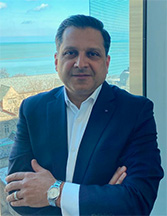
Ali Shilatifard, PhD, is the Robert Francis Furchgott Professor, chair of the Department of Biochemistry and Molecular Genetics and director of the Simpson Querrey Institute for Epigenetics. A pioneer in the field of epigenetics and distinguished cancer biologist, Shilatifard discovered the first link between transcription elongation control and human cancer. His insights have led him and numerous other investigators to develop new cancer therapeutics, and his accomplishments as both a scientific and academic leader have propelled him to the front line of advancing epigenetics and cancer research.
